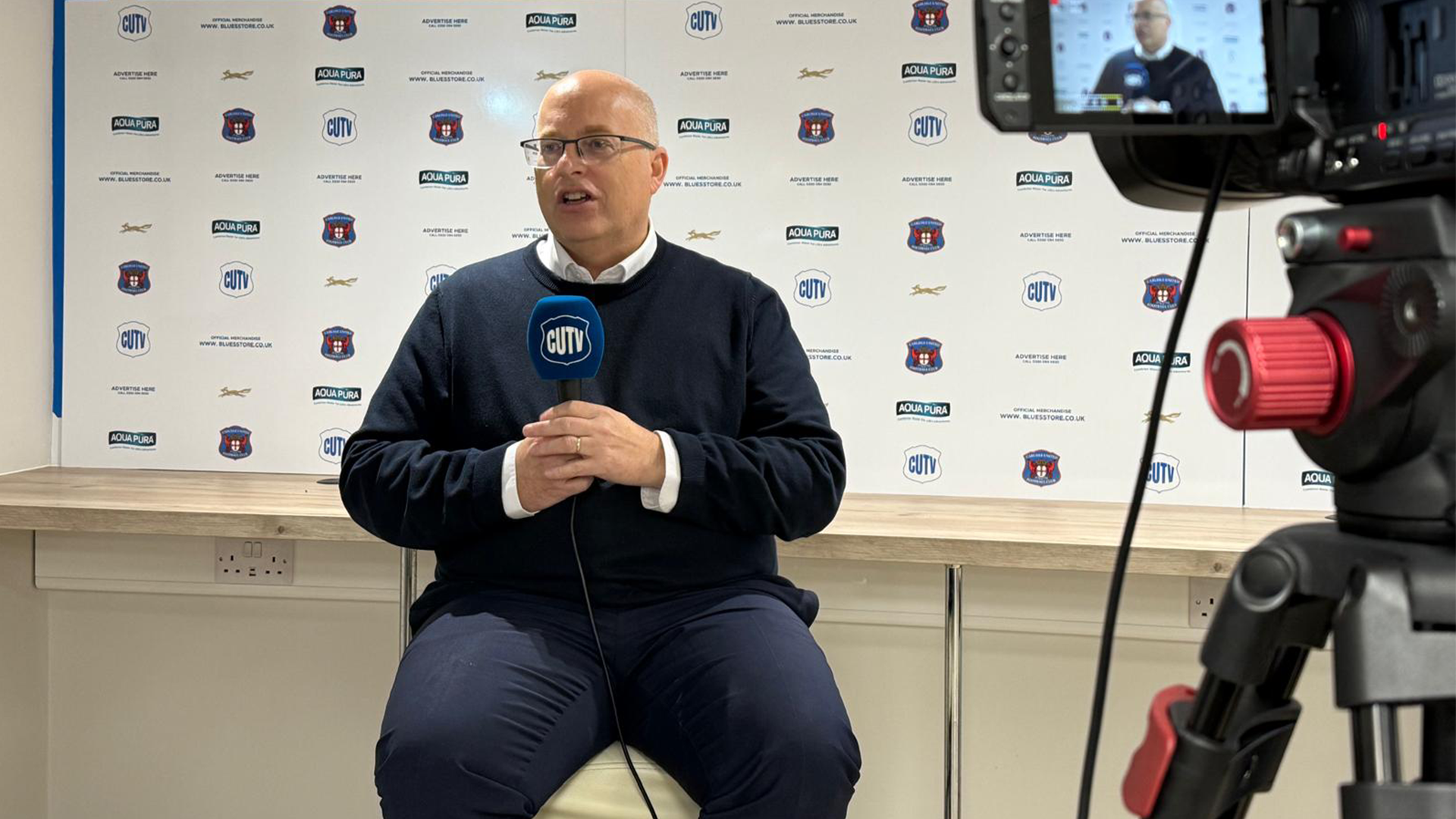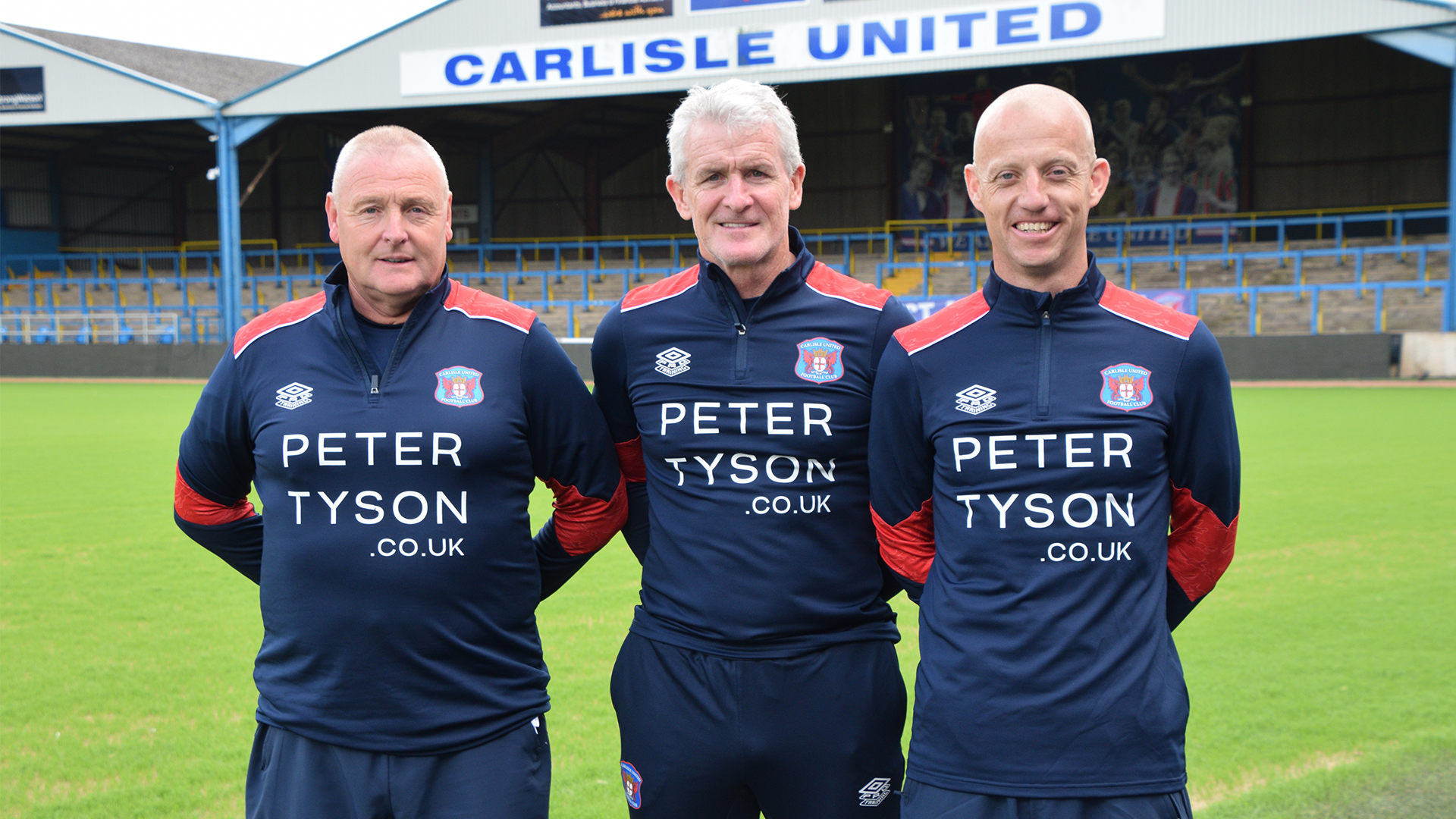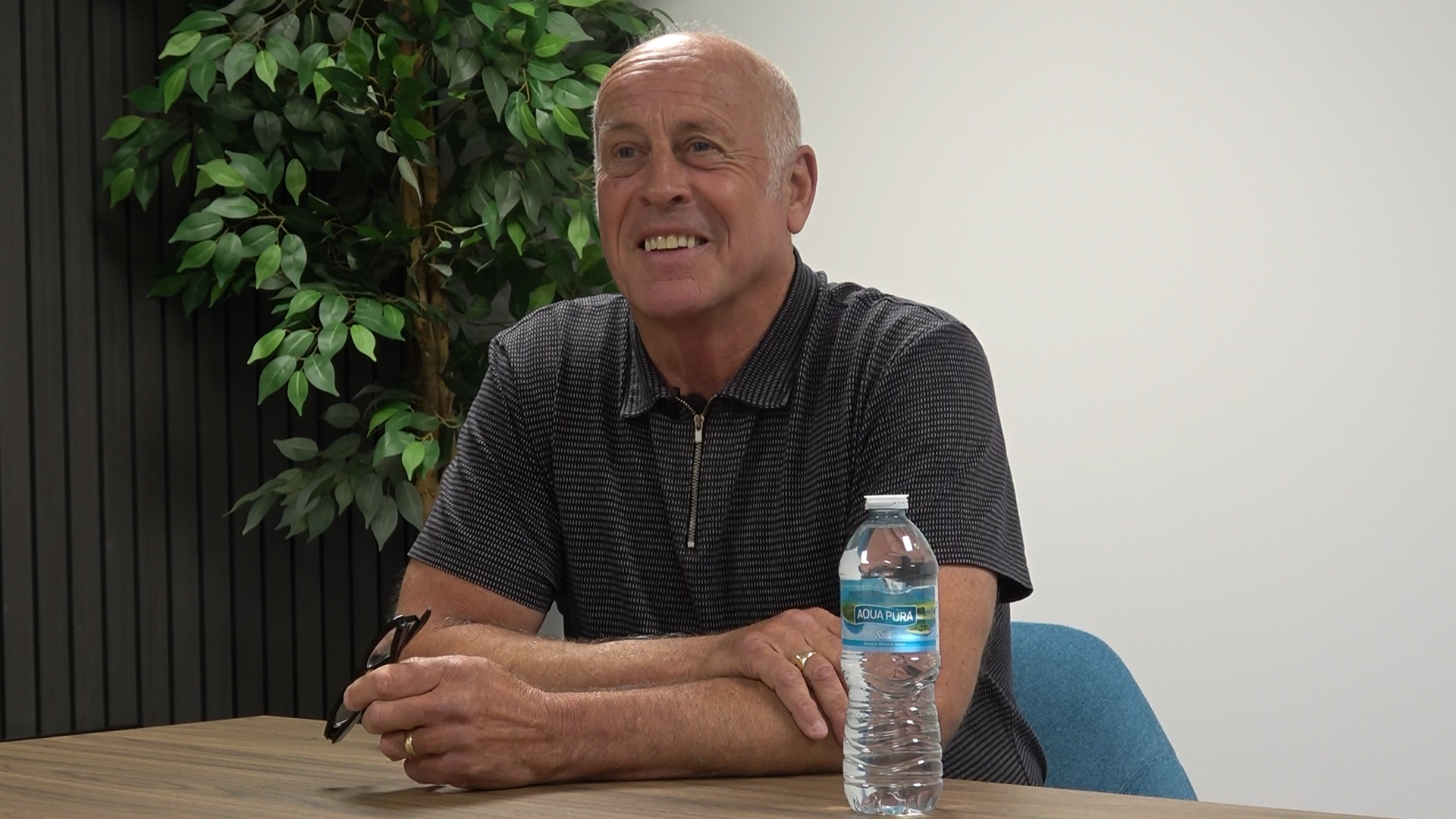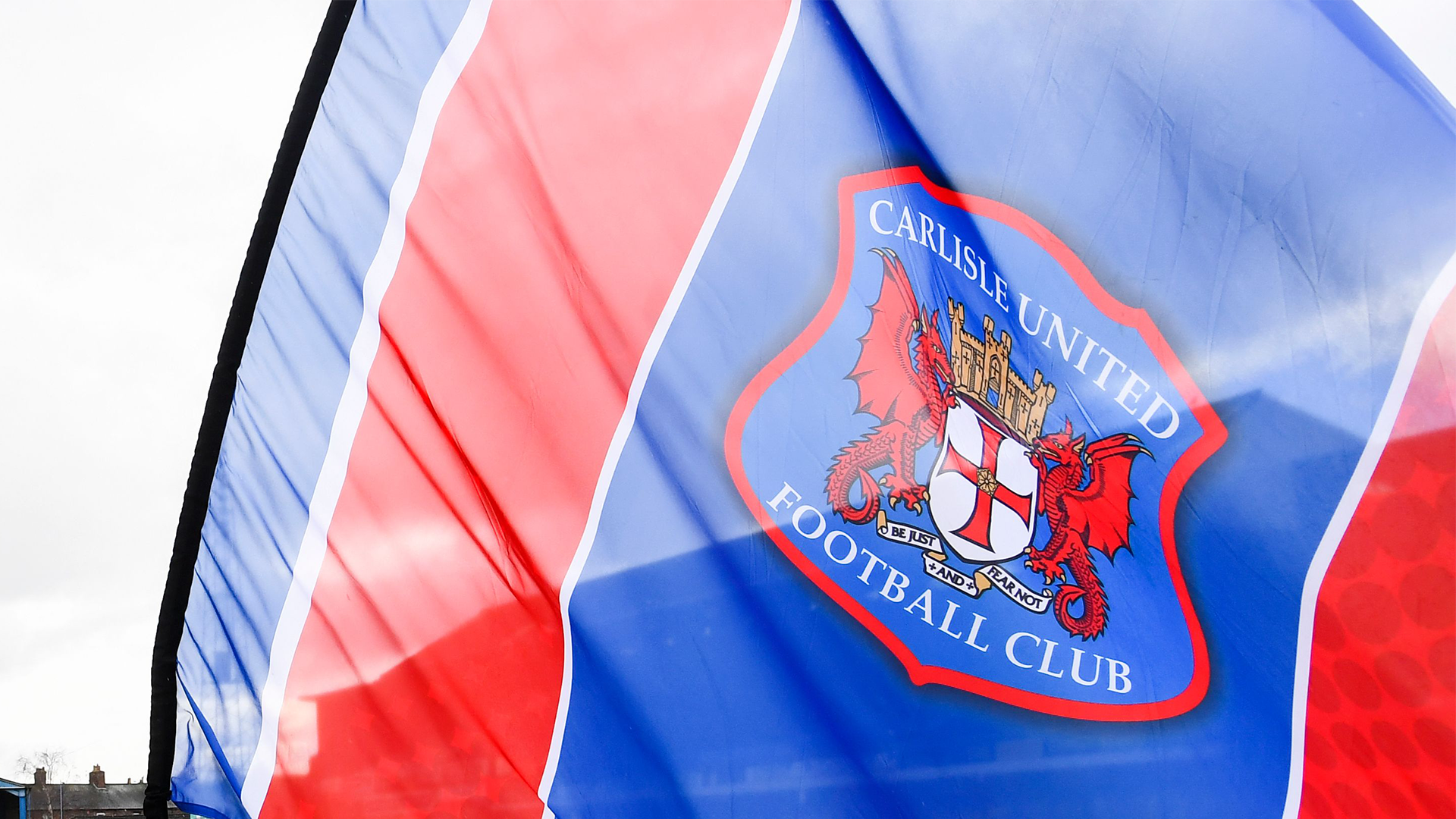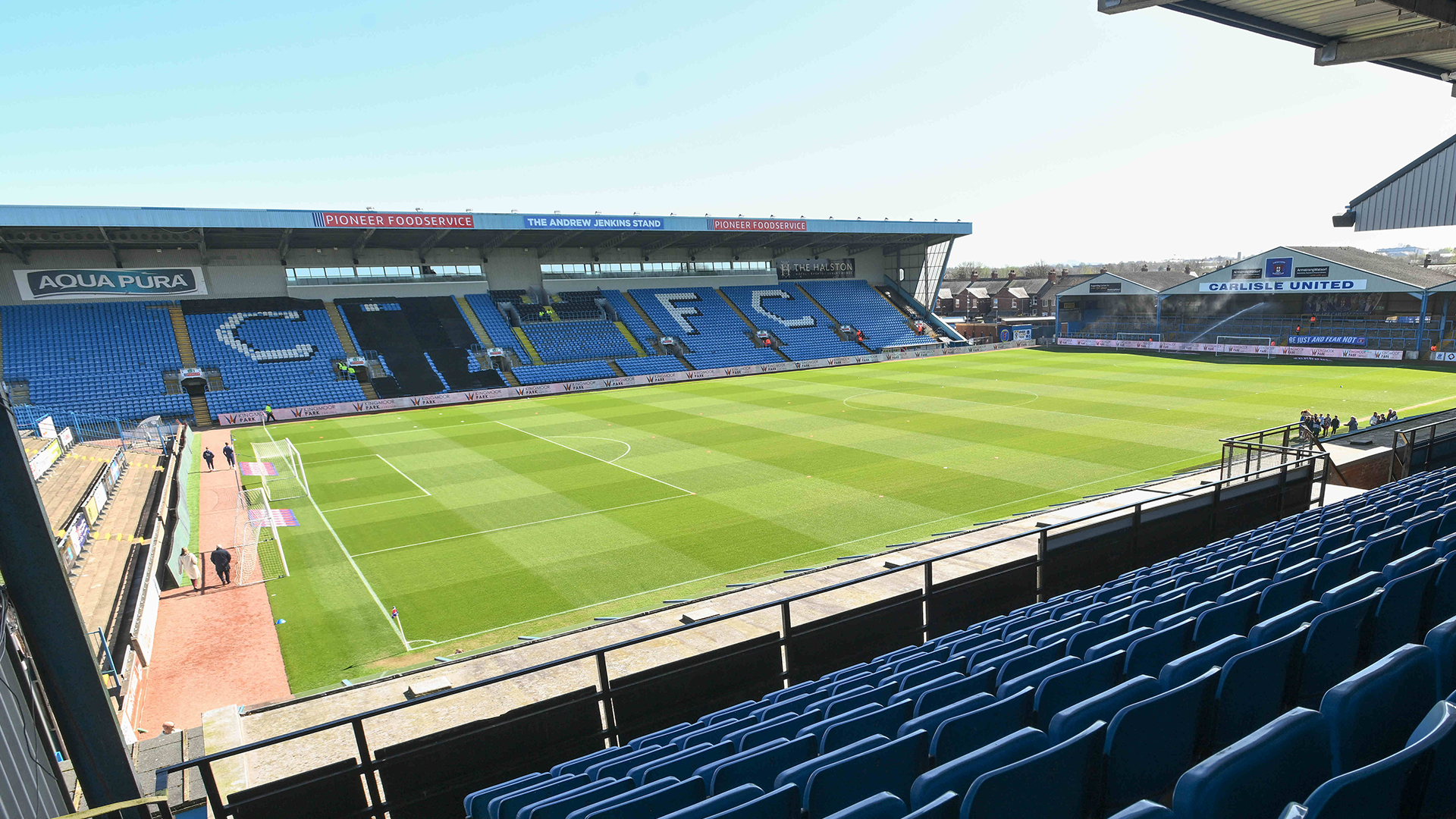We sat down with chief executive Nigel Clibbens this week to get an update on everything going on at the club.
In the first part, he talks about the change of manager, the search for a Sporting Director and the appointment of Mike Williamson.
“It's been very, very hectic. Lots of things are going on, on and off the field. It's been a really busy time.
“I think all the fans can see there's been a lot happening. The club has progressed in many areas. There’s other areas where we've got a lot more to do.”
Nigel spoke in depth about the search for a Sporting Director, and the processes to this point.
“This is a really interesting one, and it's one that I never thought I'd experience in what's recently gone on and how things have panned out. Obviously, at the start of the process, we decided we needed to make a change in management and we went public and we said that our approach was to appoint a sporting director first and then a head coach.
“We were very clear on that. The process that we undertook was really quite simple. We invited expressions of interest in the Sporting Director position.
“We built a long list, talked to lots of people, probably two dozen different people we had conversations with and we narrowed that down. In parallel to that, we were looking at the sort of head coach that we would like to bring into the football club who we felt shared the values and was aligned in terms of the vision of how we wanted to take the football club forward. So they were kind of running in parallel but it was always the intention that the sporting director would lead the way.
“We undertook that process and it went really, really well. We were able to have interviews with potential candidates and we narrowed that down. And during that process, we were saying to the sporting directors: ok, we've explained to you what the vision of the football club is, this is what we want to see moving forward, who would you be bringing in here as head coach?
“So as part of that process, we were then getting a feel of what the sporting directors were thinking and how aligned they were in what we were thinking.
“That worked really well. We got to the point where we had a preferred candidate, we offered him the job, he accepted the job, he handed his notice in to his current club and we started then planning to bring in a new head coach. That all accelerated really quickly because we were all aligned on who we wanted to get in.
“That process carried on for probably three or four days and then after four days or so, the person that we thought was going to join us changed their mind. It's never happened to me in football in 15 years. People change their minds but generally not after such a period and being so committed or saying they were so committed to our project.
“That threw a spanner in the works for us in terms of our process. But what it meant that we could still appoint the head coach because at that point we were 100% certain that Mike was our man from the process that we'd gone through with the sporting directors and the head coaches because his name was always coming up and it aligned with us. So we were totally comfortable with that.
“We also felt that in the interests of the club we didn't want to wait. Mike was our man and we wanted to move on him so we did that. Not ideal in that we'd said that we wanted the sporting director first and we hadn't delivered on that but that's life.
“Things change and you've got to react to it and one thing that I have learned in my time in football is you don't always get what you plan for. So you can't plan too far ahead and you can't be so wedded to your plan that you can't adapt and change. We've brought Mike in, brought his team in, we've focused on settling them into the club and we put the sporting director position on the back burner for two or three weeks.
“We now started that process again, looking at people who have since come forward, since Mike's come in and we're advancing that. One of the things that we wanted to do was we wanted to appoint someone who we've looked into their eyes and spoken to. So with the ownership back in Jacksonville we felt it important that we needed to wait until they returned. We're now in the process of getting ready to start those interviews again with our preferred candidates.
“They'll probably start pretty quickly as soon as Tom and the family arrive back in the UK which might be early next week, depending on the weather, because looking at the forecast in Jacksonville today after the hurricane they've got another one coming which promises sadly to be a really tough one. We're all looking to make sure everybody's safe and well in Jacksonville and we've got to react to that. We're progressing it but we're comfortable where we are.
“We're going to take our time, we're going to get the right person, someone who's totally aligned with where we want to go and we're confident we'll get that person and that's life.”
On Mike Williamson, and what made him the right candidate, Nigel said:
“Well we were very clear and Tom spoke publicly about how he wants the club to be seen, and the identity of this football club.
“He talked about the vision he has for us going forward and part of that is we want the match day to be the place to be. We want people of this city and the community to want to be at Brunton Park, and to enjoy coming and have a great day out and part of that is you've got to have great football on the pitch. It's got to be something that people want to watch.
“So we had to look forward and look at what do people want to watch. They want to watch winning football, yes, we all want to win but equally all football fans know you can't win every week and therefore you've got to put on a show and play in a way that people, even if it's not going so well, think yeah that team's given everything. They're playing a way that I like to watch, it's attractive and other clubs then look at us and say right, they're a good club, they're good off the field but they're trying to do it right on the field.
“We felt that Mike, in the way that he had firstly transformed Gateshead in the National League, he brought an identity to them, brought success to them and then he then moved to MK Dons and he'd operated with a sporting director, he'd operated in this division, took that team to the playoffs very quickly and he played in a way that we felt had some sustainability going forward.
“When we then actually spoke to him, we thought he was very special and a different kind of coach to the norm.
“He's a very intelligent person, he's very clear in his vision of how he wants to operate the team. He's got a great way with people and in talking to him we felt that he would work well with players, he would make players better. One thing that we want to see is that players come here and improve and that might not always have been the case.
“We've also recognised that the style of play impacts on the loans and the people who will come to your club. If you want to get top quality loans from top quality clubs, you have to play in a way that they think those players will improve and showcase their talents and get better. Therefore that is important in how we play as a team.
“It's very sophisticated at the higher level, they really look very closely and do lots of analysis of how teams play, how coaches play before they will allow their premium players to come to you.
“Similarly if you've got aspiring players and you're competing with one club, they look at how your team plays and whether they think they can develop with you.
“It isn't just about cash. There's a lot of strategic things in what we're trying to bring together here and we felt that Mike would deliver that for us with his team. He's come in and in the way he's working, that's already showing.
“He's very analytical, we've made it clear that the club wants to be data led in how we move forward. He embraces that and he's already started talking to the fans in those kind of terms.
“I can see in some areas that kind of new language and new approach will be a transition as fans get used to it.
“It doesn't mean that everybody is suddenly obsessed with statistics and as long as the statistics are great it doesn't matter what the result is. They kind of go hand in hand but you have to have a strong process and you have to understand the underlying nature of what you're doing because you don't win every week.
“You have to judge how you're developing and how you're progressing and Mike gets that and I think that is aligned with what we want as a club as well.
“All those things kind of sit really well with us and ultimately it comes down to winning and we felt Mike would deliver a team for us that could win in a way that everybody wants to watch and will make us all excited. He’s a good person with a good plan who can win in a way that we want sits really nicely in what we're trying to do.”
On the positive early signs in Mike’s first few games in charge, Nigel said:
“I think we always knew it was going to be difficult. We had a style of play and we've been playing in that way for quite a while. We're also towards the bottom of the league.
“There is table pressure when you don't win as often as everybody would like and that's from the top down. Nobody wants to see us at this end of the division. Nobody goes away from games when we lose.
“We all want to win but we understand equally that there's a journey to go on here and you can't transform things overnight.
“One of the things that Mike talked about when we were looking about how things might work when he came in was that transition. He's very realistic about the short-term journey and what he can implement straight away. You'll see in his interviews that he's already talking about not overloading the players, not trying to change things too quickly, adapting in games.
“You saw that on Saturday at Colchester. We played really well in the first half. We dominated possession, we dominated territory.
“We caused Colchester a lot of problems but in the second half they changed, they got better and we had to adapt and deal with that. Therefore it wasn't about just sticking religiously to our method. We had to adapt and the players were able to adapt.
“I think we're encouraged by all that. We know there's going to be some bumps in the road and we're ready for those but if we want to get where we want to be, we've got to start the journey now. If there's one thing that brings all this together, if you look at our experience in League One, the game has changed since Carlisle were last in League One.
“The way teams play, the way you have to play to win games, it's a whole different game now. We have to recognise that. Therefore if we want to aspire to move up the football pyramid, we have to do so in a way that is sustainable.
“We can't just win. We have to win in a way that will help us win for the longer term. Otherwise we're quickly back to square one.
“There's a lot of things that come together. We've just started that journey and it's really exciting, just as it's exciting off the field. It's a new system to adjust to but when all those changes happen and everyone gets used to what's going on, it's a really exciting vision in the long term.
“I think the fans can see the changes already. They can see patterns of play developing. They can see an identity developing in the team.
“But at the same time as you're doing that, you've got to win points. We all understand that. You've got to be adaptable and recognise that.
“I think everybody does. I think the fans should take comfort that Mike does and the club gets that. We know that we've got a journey to go on and we've got to do it in the right way so that we can achieve some results and progress in a good fashion.
“But we know where we're getting to. It's important as well in the head coach role that there isn't as much expectation to do many other things other than on the pitch. I think, again, football clubs have developed over time.
“They're unrecognisable really from even a decade ago. Even at this level, the requirements and demands on a manager or a coach, however you label them, are increasing all the time. The days have gone when a manager can be all-seeing and all-doing and have a finger on every single pulse in a football club.
“Even if someone wants to do that, even if they think they can do that, the practicalities are that it's impossible. So we have to recognise that and you have to adapt.
“So this is where the sporting director role comes in. It's impossible for a head coach to be preparing for the number of games that you have and trying to implement the tactics and the detailing with the players and be with the players as much as they need to be when you've got two games in a week like we have and all the travelling and all that goes with it and squads of 30 players and all these kinds of things. It's impossible to do that.
“It's just not practical, and we have to adapt to that. So that means bringing in more staff.
“It means implementing the structure that we're doing. And also then it means that the people within that structure have to operate in a different manner. They have to be able to delegate. They have to be comfortable in working in a team environment and trusting other members of their team
“We want a much more collaborative approach, but ultimately that means people have to judge the other people and have to trust the other people in their team.
“If you go through a data-led process and the data identifies people who you might not have heard of or might not be familiar with, and they're coming out as potential players, then you've got to do the work on them with your eyes, bring it together, and then be open-minded enough that they might actually be worth the decision here, rather than just looking to recruit familiar players that we've seen before. Because that's not going to give us an edge. So there's lots of things to think about here.”
Mike has arrived at Brunton Park with five members of his coaching staff from MK Dons, which Nigel also commented on:
“I think it will massively help Mike to know the staff he’s working with already. If you look at the practicalities of it, we're in a tricky position, we need to change the culture around reasonably quickly, and we need to develop and there's lots of things to do.
“That's much more easily done if you're working within a coaching team where everybody already has those relationships, where they already trust each other, they know how each other works, they know what good looks like from each individual's point of view, they can almost second-guess what they're thinking. That speeds that process up, so we're quite comfortable to do that, and that fits in with what we're trying to do. It ensures everybody's on the same page and everybody's aligned.
“I think it's always the case that, being realistic, when you're in a difficult place and there's a change in manager or coach, there's always comments that come out saying everybody's much happier than they were unhappy before. I kind of sift through that and take it with a bit of a pinch of salt, to be honest.
“I think the key bit is that it's a different voice and there's a clarity of what we're trying to achieve here. I think the staff, the group that Mike's brought in and that we've got now in the club, they complement each other. There is a trust between them.
“They work as a team, so it's not a domineering culture or anything like that. They're very much as a team and they're all working in the same direction with the same detail and that's really important. I think the players, from my point of view, have embraced that.
“When there was the hiatus where we had no head coach, during those two or three weeks we spent quite a bit of time around the players, listening to what they had to say, what they felt needed to change. We were able to pass those messages on to Mike so that he came in with his eyes open. One thing that was clear was that the players wanted to get better.
“They weren't accepting of where they were. They felt a responsibility and they wanted to improve themselves and the team together. That was before Mike came in, so that was really positive.
“There was no feeling sorry for themselves. There was a responsibility and accountability and they felt that they needed to step up. At the same time, it was clear that they felt that they needed help to do that.
“They wanted someone to come in and be a head coach who would be demanding of them, set high standards and really push them to improve. Ultimately, they're almost like self-employed people. Their destiny depends on how good they are, but they're within a team.
“They have to perform for themselves and the team has to perform. If you do that, then they'll get the rewards for it, whether that's better contracts, success, more security for their family. They all know that they need to succeed personally, but they all know that they can't do it themselves.
“That's why football is a strange business because you're very individual, but you're part of a team. You can't do things on your own and you need the coaching staff, the head coach to play his part for you. That's really good and we're encouraged by it, but there's a long way to go.”

